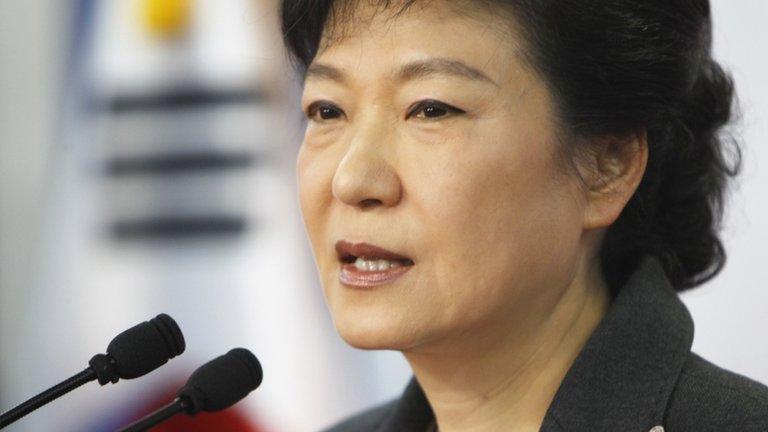Park Geun-hye sworn in as South Korea president
- Published
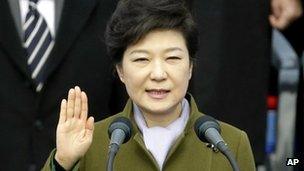
Ms Park, 61, is the first woman to lead South Korea
Park Geun-hye promised a tough stance on national security and an era of economic revival as she was sworn in as South Korea's president.
Ms Park, who defeated liberal rival Moon Jae-in in December's general election, took the oath of office in front of tens of thousands of people.
North Korea's recent nuclear test posed a "challenge to the survival" of the Korean people, she said.
Trust-building was needed to tackle the "extremely serious" security situation.
Ms Park, the first woman to lead South Korea, succeeds President Lee Myung-bak, of the same Saenuri Party, who stepped down as the law required after a five-year term.
The 61-year-old is the daughter of former military strongman Park Chung-hee, who ruled South Korea for almost two decades.
She takes office amid high tensions on the Korean peninsula in the wake of a North Korean nuclear test, on 12 February.
'Step-by-step engagement'
In her inauguration speech, external, Ms Park said she would "not tolerate any action that threatens the lives of our people and the security of our nation".
"North Korea's recent nuclear test is a challenge to the survival and future of the Korean people, and there should be no mistake that the biggest victim will be none other than North Korea itself."
Calling on North Korea to abandon its nuclear ambitions, she said that in a challenging security environment South Korea could not "afford to remain where we are".
A trust-building process was needed, she said, promising to move forward "step-by-step on the basis of credible deterrence".
"Trust can be built through dialogue and by honouring promises that have already been made," she said. "It is my hope that North Korea will abide by international norms and make the right choice so that the trust-building process on the Korean Peninsula can move forward."
North Korea's nuclear test - its third - followed its apparently successful launch of a three-stage rocket to put a satellite into orbit in December. That launch was condemned by the US Security Council as a banned test of missile technology; diplomatic efforts to agree a response to the nuclear test are ongoing.
Ties between the two Koreas chilled considerably under Lee Myung-bak over his move to link aid to concessions on the nuclear issue. Ahead of the election Ms Park had spoken out on the need for more dialogue but the recent nuclear test may make it harder for her to appear conciliatory towards Pyongyang, observers say.
'Unfair practices'
On the economy, Ms Park promised more focus on a "creative economy" founded in "economic democratisation" that would expand beyond existing markets and sectors.
Ms Park said North Korea's recent nuclear test posed a "challenge to the survival" of the Korean people
South Korea's economic growth has slowed, the population is rapidly ageing, and demands for a fairer division of wealth are now being voiced on both sides of the political divide, reports the BBC's Lucy Williamson in Seoul.
Policies would be brought in to help small and medium-sized enterprises flourish, Ms Park said.
"By rooting out various unfair practices and rectifying the misguided habits of the past... we will provide active support to ensure that everyone can live up to their fullest potential," she added, in an apparent nod to resentment towards the country's giant "chaebol" conglomerates.
She also promised a "clean, transparent and competent government".
"I will endeavour to shed popular distrust of government and strive to elevate the capital of trust," she said.
- Published24 February 2013
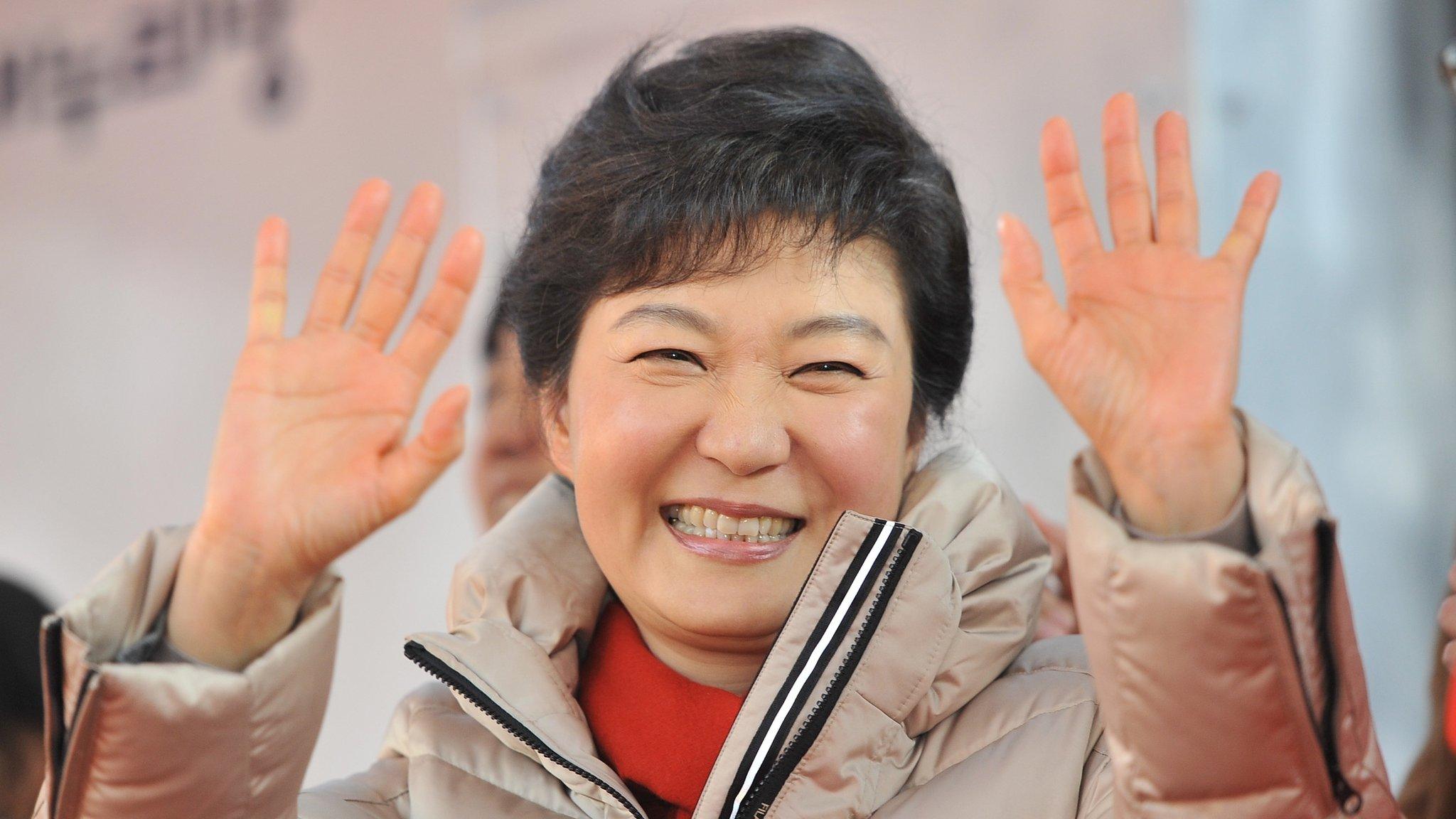
- Published19 December 2012
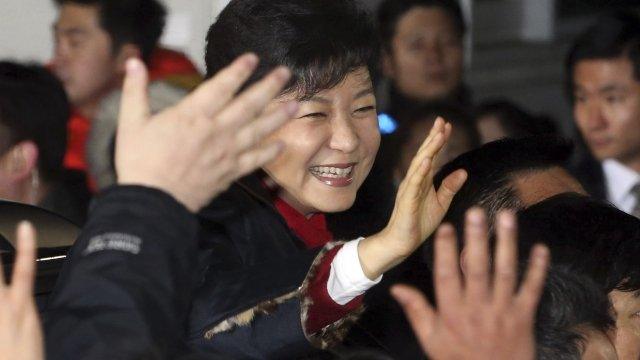
- Published6 April 2018
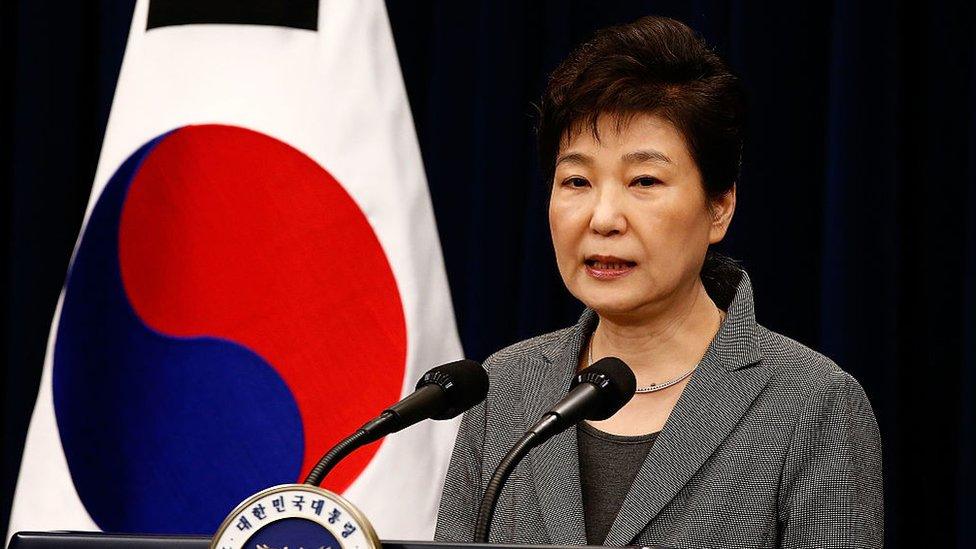
- Published20 December 2012
